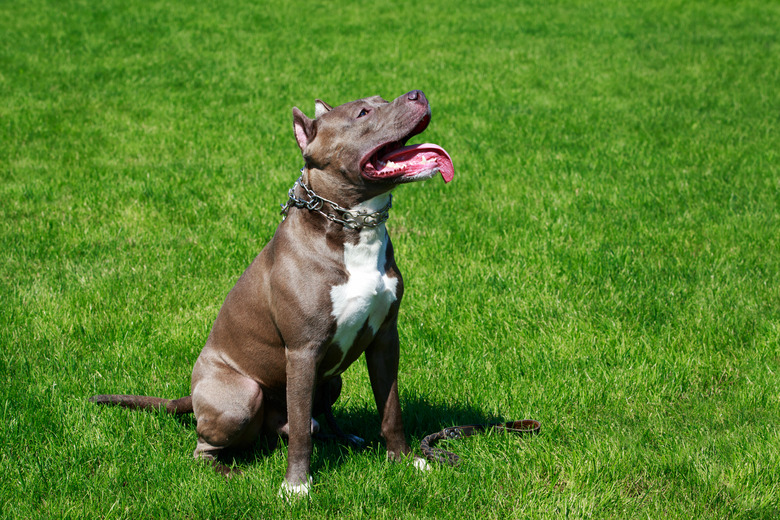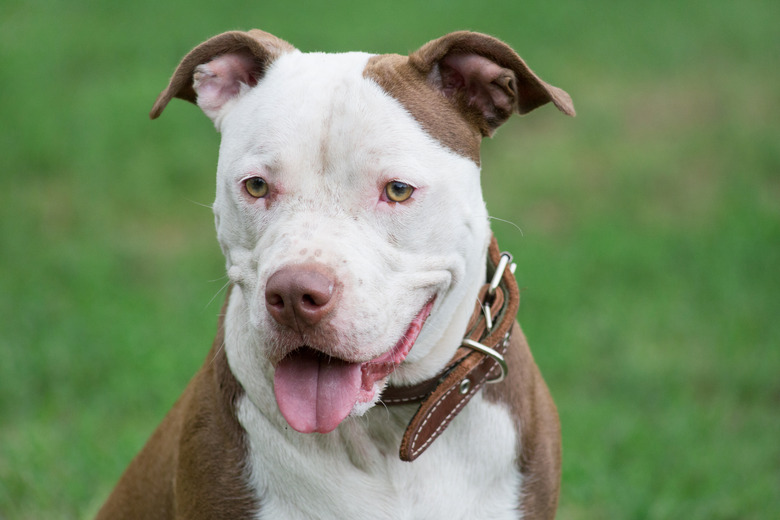Do They Have American Pit Bull Terriers At The Westminster Dog Show?
The American pit bull terrier is not shown at the Westminster Kennel Club Dog Show because the breed is not recognized by the American Kennel Club. Westminster is an AKC dog show, and only AKC dogs are represented. The AKC recognizes the American pit bull's close cousin and lookalike, the American Staffordshire terrier, which is shown at Westminster. Both of these terrier breeds are easy to confuse with another, very similar breed, the Staffordshire bull terrier.
Pit bull breed differences
Pit bull breed differences
The American pit bull terrier is recognized as a breed by two dog registry organizations: the American Dog Breeders Association and the United Kennel Club. However, the pit bull is not recognized by the American Kennel Club.
The American Staffordshire terrier has been recognized by the AKC since 1396. If you watch the Westminster Dog Show, you will think you are seeing an American pit bull terrier, because the pit bull and the AmStaff look almost exactly alike. In fact, they are so close that some AmStaffs have been registered with the UKC as pit bulls, and some pit bulls with the AKC as AmStaffs.
These terrier breeds are related
The American pit bull, the American Staffordshire terrier and the Staffordshire bull terrier were essentially the same breed until the 1930s, when the three types were developed and bred to be slightly different sizes for various uses. The differences in the three breeds are so subtle that even DNA tests frequently do not reflect a single one, but rather a combination of the three. So if you're looking at a Staffie or AmStaff in Westminster, it would be easy to mistake it for an American pit bull terrier. They are all small guard dog breeds that are closely related.
Origin of the terrier breeds
Origin of the terrier breeds
American pit bull terriers are the result of breeding bulldogs with terriers when the breed was developed in England, Ireland, and Scotland in the 19th century. Early breeders were looking for a dog who embodied the terrier's sense of game with the bulldog's athleticism. The first American pit bull was owned by the founder of the UKC, C.Z. Bennett, and registered in 1898. Since then, pit bulls have been owned by Presidents Theodore Roosevelt and Woodrow Wilson, Gen. George Patton, Fred Astaire, and Humphrey Bogart. The AmStaff has been seen in older "Our Gang" films and "The Little Rascals" television series.
The reason the pit bull was not recognized by the AKC as a registered breed was because in the late 1800s, the AKC did not want to be associated with dog fighting as a dog registry organization. It wasn't until 1935, when anti-dog-fighting legislation was passed that the American Kennel Club first recognized the Staffordshire terrier as a breed.
No Westminster for pit bulls
No Westminster for pit bulls
American Staffordshire terriers were first recognized by the AKC in 1936 and are eligible to show at Westminster. Considered the Super Bowl of dog shows, the Westminster Kennel Club show attracts the champions in roughly 175 breeds each year. American pit bull terriers and American Staffordshire terriers have become known as distinctly separate since the 1900s, although the dogs remain strikingly similar in type and temperament. Without AKC breed recognition, the American pit bull terrier is not eligible for the Westminster show ring.
References
- Pit Bull Rescue Central: Frequently Asked Questions
- American Kennel Club: Get to Know the American Staffordshire Terrier
- American Kennel Club: Get to Know the Staffordshire Bull Terrier
- United Kennel Club: American Pit Bull Terriers
- American Dog Breeders Association
- AKC: American Staffordshire Terrier History: How the AmStaff Separated From the "Pit Bull"


